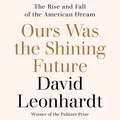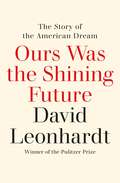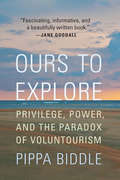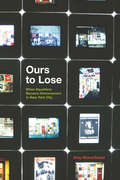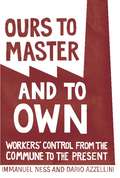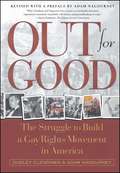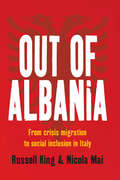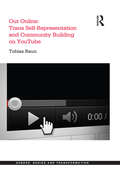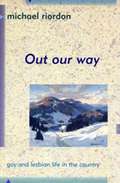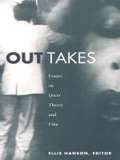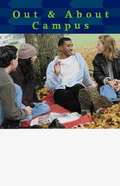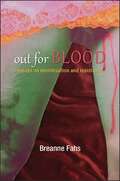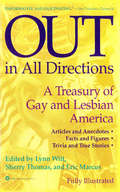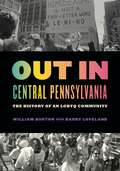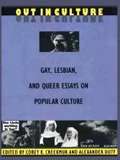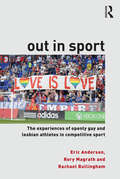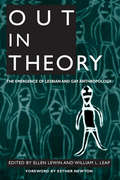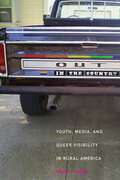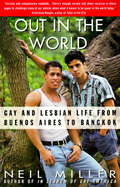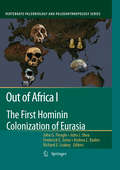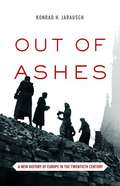- Table View
- List View
Ours Was the Shining Future: The Story of the American Dream
by David LeonhardtThe clear-eyed, definitive history of the modern American economy and the decline of the American Dream, from the Pulitzer Prize-winning columnist behind The New York Times's "The Morning" newsletter.Two decades into the twenty-first century, the stagnation of living standards has become the defining trend of American life. Life expectancy has declined, economic inequality has soared, and, after some progress, the Black-white wage gap is once again as large as it was in the 1950s. How did this happen in the world's most powerful country? And what happened to the "American dream"-the promise of a happier, healthier, more prosperous future-which was once such an inextricable part of our national identity?Drawing on decades of writing about the economy for The New York Times, Pulitzer Prize-winning writer David Leonhardt examines the past century of American history, from the Great Depression to today's Great Stagnation, in search of an answer.To make sense of the rise and subsequent fall of the American dream, Leonhardt tells the story of the modern American economy as an ongoing battle between two competing forms of capitalism: one that envisions prosperity for most, and one that serves the individual and favors the wealthy. In vivid prose, Ours Was the Shining Future traces how democratic capitalism flourished to make the American dream possible, until the latter decades of the twentieth century when, bit by bit, the dream was corrupted to serve only the privileged few.Ours Was the Shining Future is a sweeping narrative full of innovation and grit, human drama and hope. Featuring the trailblazing figures who helped shape the American dream-Frances Perkins, Paul Hoffman, Cesar Chavez, Robert Kennedy, A. Philip Randolph, Grace Hopper, and more-this engaging history reveals the power of grassroots democratic movements from across the political spectrum. And though the American dream feels lost to us now, Leonhardt shows how Americans-if they commit themselves to transforming the economy, as they did in the past-have the power to revive the dream once more
Ours Was the Shining Future: The Story of the American Dream
by David LeonhardtThe clear-eyed, definitive history of the modern American economy and the decline of the American Dream, from the Pulitzer Prize-winning columnist behind The New York Times's "The Morning" newsletter.Two decades into the twenty-first century, the stagnation of living standards has become the defining trend of American life. Life expectancy has declined, economic inequality has soared, and, after some progress, the Black-white wage gap is once again as large as it was in the 1950s. How did this happen in the world's most powerful country? And what happened to the "American dream"-the promise of a happier, healthier, more prosperous future-which was once such an inextricable part of our national identity?Drawing on decades of writing about the economy for The New York Times, Pulitzer Prize-winning writer David Leonhardt examines the past century of American history, from the Great Depression to today's Great Stagnation, in search of an answer.To make sense of the rise and subsequent fall of the American dream, Leonhardt tells the story of the modern American economy as an ongoing battle between two competing forms of capitalism: one that envisions prosperity for most, and one that serves the individual and favors the wealthy. In vivid prose, Ours Was the Shining Future traces how democratic capitalism flourished to make the American dream possible, until the latter decades of the twentieth century when, bit by bit, the dream was corrupted to serve only the privileged few.Ours Was the Shining Future is a sweeping narrative full of innovation and grit, human drama and hope. Featuring the trailblazing figures who helped shape the American dream-Frances Perkins, Paul Hoffman, Cesar Chavez, Robert Kennedy, A. Philip Randolph, Grace Hopper, and more-this engaging history reveals the power of grassroots democratic movements from across the political spectrum. And though the American dream feels lost to us now, Leonhardt shows how Americans-if they commit themselves to transforming the economy, as they did in the past-have the power to revive the dream once more
Ours to Explore: Privilege, Power, and the Paradox of Voluntourism
by Pippa BiddleIn a 2014 essay that went viral, Pippa Biddle revealed the inequities and absurdities baked into voluntourism—the pairing of short-term, unskilled volunteer work with tourism. In the years since, Biddle has devoted herself to understanding the origins, intentions, and outcomes of a multibillion-dollar industry built on the premise of doing good, and she tracks that investigation in Ours to Explore. The flaws of voluntourism have included xenophobia, racism, paternalism, and a &“West knows best&” mentality. From exploitative orphanages that keep children in squalid conditions to attract donors to undertrained medical volunteers practicing their skills on patients in developing regions and to those looking for an inspiring selfie, Biddle reveals the hidden costs of the voluntourism complex. Along the way, readers meet inspiring activists and passionate community members, as well as thoughtful former voluntourists who still work to make a difference—just differently.Ours to Explore offers a plan for how the service-based travel industry can break the cycle of exploitation and suggests strategies for travelers who want to improve the places they visit for the long haul.
Ours to Lose: When Squatters Became Homeowners in New York City
by Amy StarecheskiThough New York's Lower East Side today is home to high-end condos and hip restaurants, it was for decades an infamous site of blight, open-air drug dealing, and class conflict--an emblematic example of the tattered state of 1970s and '80s Manhattan. Those decades of strife, however, also gave the Lower East Side something unusual: a radical movement that blended urban homesteading and European-style squatting in a way never before seen in the United States. Ours to Lose tells the oral history of that movement through a close look at a diverse group of Lower East Side squatters who occupied abandoned city-owned buildings in the 1980s, fought to keep them for decades, and eventually began a long, complicated process to turn their illegal occupancy into legal cooperative ownership. Amy Starecheski here not only tells a little-known New York story, she also shows how property shapes our sense of ourselves as social beings and explores the ethics of homeownership and debt in post-recession America.
Ours to Master and to Own
by Immanuel Ness Dario AzzelliniFrom the dawning of the industrial epoch, wage earners have organized themselves into unions,fought bitter strikes, and gone so far as to challenge the very premises of the system by creatinginstitutions of democratic self-management aimed at controlling production without bosses. Withspecific examples drawn from every corner of the globe and every period of modern history, thispathbreaking volume comprehensively traces this often underappreciated historical tradition.Ripe with lessons drawn from historical and contemporary struggles for workers' control, Ours toMaster and to Own is essential reading for those struggling to create a new world from the ashesof the old.Immanuel Ness is professor of political science at Brooklyn College, City University of New York, and edits WorkingUSA.Dario Azzellini is a writer, documentary director, and political scientist at Johannes Kepler University in Linz.
Out For Good: The Struggle To Build A Gay Rights Movement in America
by Dudley ClendinenThis is the definitive account of the last great struggle for equal rights in the twentieth century. From the birth of the modern gay rights movement in 1969, at the Stonewall riots in New York, through 1988, when the gay rights movement was eclipsed by the more urgent demands of AIDS activists, this is the remarkable and until now untold story of how a largely invisible population of men and women banded together to create their place in America's culture and government. Told through the voices of gay activists and their opponents, filled with dozens of colorful characters, Out for Good traces the emergence of gay rights movements in cities across the country and their transformation into a national force that changed the face of America forever
Out For Good: The Struggle to Build a Gay Rights Movement in America
by Dudley Clendinen Adam NagourneyThe definitive account of the gay rights movement, Dudley Clendinen and Adam Nagourney's Out for Good is comprehensive, authoritative, and excellently written. This is the definitive account of the last great struggle for equal rights in the twentieth century. From the birth of the modern gay rights movement in 1969, at the Stonewall riots in New York, through 1988, when the gay rights movement was eclipsed by the more urgent demands of AIDS activists, this is the remarkable and—until now—untold story of how a largely invisible population of men and women banded together to create their place in America&’s culture and government. Told through the voices of gay activists and their opponents, filled with dozens of colorful characters, Out for Good traces the emergence of gay rights movements in cities across the country and their transformation into a national force that changed the face of America forever. Out for Good is the unforgettable chronicle of an important—and nearly lost—chapter in American history.
Out Of Albania: From Crisis Migration to Social Inclusion in Italy
by Nicola Mai Russell KingAnalysing the dynamics of the post-1990 Albanian migration to Italy, this book is the first major study of one of Europe's newest, most dramatic yet least understood migrations. It takes a close look at migrants' employment, housing and social exclusion in Italy, as well as the process of return migration to Albania. The research described in the book challenges the pervasive stereotype of the "bad Albanian" and, through in-depth fieldwork on Albanian communities in Italy and back in Albania, provides rich insights into the Albanian experience of migration, settlement and return in both their positive and their negative aspects.
Out Of The Closet Into Our Hearts: Celebrating Our Gay/Lesbian Family Members
by Laura Siegel Nancy Lamkin OlsonOut Online: Trans Self-Representation and Community Building on YouTube (Gender, Bodies and Transformation)
by Tobias RaunTrans people are increasingly stepping out of the shadow of pathologization and secretiveness to tell their life stories, share information and to connect with like-minded others, using YouTube as a platform. Out Online: Trans Self-Representation and Community Building on YouTube explores the digital revolution of trans video blogging, addressing ’trans’ in its many meanings and configurations to examine the different ways in which the body in transformation and the vlog as a medium intersect. Drawing on rich, virtual ethnographic studies of trans video blogging, the author sheds light on the ways in which the video blog (or ’vlog’) as a multimodal medium enables trans people to tell their stories with the use of sound, text, music, and pictures - thus offering new ways to construct and archive bodily changes, and to revise the story endlessly. A groundbreaking study of the intersection between trans identity and technology, Out Online explores the transformative and therapeutic potential of the video blog as a means by which trans vloggers can emerge and develop online, using the vlog as a site for creation, intervention, community building and resistance. As such, it will appeal to social scientists and scholars of cultural and media studies with interests in gender, sexuality and embodiment.
Out Our Way: Gay and Lesbian Life in the Country
by Michael RiordonMichael Riordon celebrates the survival of ordinary, extraordinary people whose experiences are rarely reflected in the media. These stories of courage and humour were gathered in the course of two years and 27,000 kilometres of travel, and some three hundred in-person conversations.
Out Takes: Essays on Queer Theory and Film
by Ellis HansonThis collection brings together the work of both film scholars and queer theorists to advance a more sophisticated notion of queer film criticism. While the "politics of representation" has been the focus of much previous gay and lesbian film criticism, the contributors to Out Takes employ the approaches of queer theory to move beyond conventional readings and to reexamine aspects of the cinematic gaze in relation to queer desire and spectatorship.The essays examine a wide array of films, including Calamity Jane, Rear Window, The Hunger, Heavenly Creatures, and Bound , and discuss such figures as Doris Day, Elizabeth Taylor, and Alfred Hitchcock. Divided into three sections, the first part reconsiders the construction of masculinity and male homoerotic desire--especially with respect to the role of women--in classic cinema of the 1940s and 1950s. The second section offers a deconstructive consideration of lesbian film spectatorship and lesbian representation. Part three looks at the historical trajectory of independent queer cinema, including works by H.D., Kenneth Anger, and Derek Jarman.By exploring new approaches to the study of sexuality in film, Out Takes will be useful to scholars in gay and lesbian studies, queer theory, and cinema studies.Contributors. Bonnie Burns, Steven Cohan, Alexander Doty, Lee Edelman, Michelle Elleray, Jim Ellis, Ellis Hanson, D. A. Miller, Eric Savoy, Matthew Tinkcom, Amy Villarejo, Jean Walton
Out and About Campus: Personal Accounts by Lesbian, Bisexual, and Transgendered College Students
by Kim Howard Annie StevensPersonal accounts of LBGT college students from around the U.S.
Out for Blood: Essays on Menstruation and Resistance (SUNY series, Praxis: Theory in Action)
by Breanne FahsFinalist for the 2016 Foreword INDIES Book of the Year Award in the Women's Studies categoryWinner of the 2017 Distinguished Publication Award presented by the Association for Women in PsychologyTransporting the reader to worlds in which Komodo dragons prey on menstruating women, artists prowl the streets of Spain in blood-stained pants, and the myths of women bleeding in synchrony with each other are drawn and redrawn, these eleven essays on menstruation and resistance evoke thought-provoking tensions between silence and confrontation, shame and rebellion, and compliance and disobedience. Fusing together gender and feminist theory, critical body studies, political activism, and menstrual anarchy, Breanne Fahs illuminates the troubling omissions of menstrual coming-of-age narratives in the museum, the outdated terminology of "feminine hygiene," and the moral panics about blood that erupts from in and outside of our bathrooms, classrooms, and cell phones. Borrowing from a multitude of voices—single moms, trans teenagers, zine makers, menstrual artists, college students, tour guides, French philosophers, and culture jammers—Fahs forcefully argues for a new culture of menstruation, one where the joys, rhythms, and controversies of menstrual cycles collides with the defiant, shameless, and bold new possibilities of menstrual resistance.
Out in Africa: LGBT Organizing in Namibia and South Africa (Social Movements, Protest and Contention #38)
by Ashley CurrierVisibility matters to activists—to their social and political relevance, their credibility, their influence. But invisibility matters, too, in times of political hostility or internal crisis. Out in Africa is the first to present an intimate look at how Namibian and South African lesbian, gay, bisexual, and transgender (LGBT) organizations have cultivated visibility and invisibility as strategies over time. As such, it reveals the complexities of the LGBT movements in both countries as these organizations make use of Western terminology and notions of identity to gain funding even as they work to counter the perception that they are &“un-African.&”Different sociopolitical conditions in Namibia and South Africa affected how activists in each country campaigned for LGBT rights between 1995 and 2006. Focusing on this period, Ashley Currier shows how, in Namibia, LGBT activists struggled against ruling party leaders&’ homophobic rhetoric and how, at the same time, black LGBT citizens of South Africa, though enjoying constitutional protections, greater visibility, and heightened activism, nonetheless confronted homophobic violence because of their gender and sexual nonconformity.As it tells the story of the evolving political landscape in postapartheid Namibia and South Africa, Out in Africa situates these countries&’ movements in relation to developments in pan-African LGBT organizing and offers broader insights into visibility as a social movement strategy rather than simply as a static accomplishment or outcome of political organizing.
Out in All Directions: A Treasury of Gay and Lesbian America
by Eric Marcus Lynn Witt Sherry ThomasThis volume takes the mystery out of gay and lesbian history, lifts the lid off pink politics, and paints the town lavender with hundreds of lively articles and intriguing facts covering every aspect of gay life, culture, and community. From debunking myths to creating family, from fighting for rights to battling AIDS, from showbiz superstars to military heroes, dozens of notable contributors come out in all directions -- providing both a useful guide to issues and resources and an entertaining and informative mirror of the American lesbian and gay experience.
Out in Central Pennsylvania: The History of an LGBTQ Community (Keystone Books)
by William BurtonOutside of major metropolitan areas, the fight for lesbian, gay, bisexual, and transgender rights has had its own unique and rich history—one that is quite different from the national narrative set in New York and California. Out in Central Pennsylvania highlights one facet of this lesser-known but equally important story, immersing readers in the LGBTQ community building and social networking that has taken place in the small cities and towns in the heart of Pennsylvania from the 1960s to the present day.Drawing from oral histories and the archives of the LGBT Center of Central PA History Project, this book recounts the innovative ways that LGBTQ central Pennsylvanians organized to demand civil rights and to improve their quality of life in a region that often rejected them. Full of compelling stories of individuals seeking community and grappling with inequity, harassment, and discrimination, and featuring a distinctive trove of historical photographs, Out in Central Pennsylvania is a local story with national implications. It brings rural and small-town queer life out into the open and explores how LGBTQ identity and social advocacy networks can form outside of a large urban environment.
Out in Central Pennsylvania: The History of an LGBTQ Community (Keystone Books)
by William BurtonOutside of major metropolitan areas, the fight for lesbian, gay, bisexual, and transgender rights has had its own unique and rich history—one that is quite different from the national narrative set in New York and California. Out in Central Pennsylvania highlights one facet of this lesser-known but equally important story, immersing readers in the LGBTQ community building and social networking that has taken place in the small cities and towns in the heart of Pennsylvania from the 1960s to the present day.Drawing from oral histories and the archives of the LGBT Center of Central PA History Project, this book recounts the innovative ways that LGBTQ central Pennsylvanians organized to demand civil rights and to improve their quality of life in a region that often rejected them. Full of compelling stories of individuals seeking community and grappling with inequity, harassment, and discrimination, and featuring a distinctive trove of historical photographs, Out in Central Pennsylvania is a local story with national implications. It brings rural and small-town queer life out into the open and explores how LGBTQ identity and social advocacy networks can form outside of a large urban environment.
Out in Culture: Gay, Lesbian and Queer Essays on Popular Culture
by Corey K. Creekmur Alexander DotyOut in Culture charts some of the ways in which lesbians, gays, and queers have understood and negotiated the pleasures and affirmations, as well as the disappointments, of mass culture. The essays collected here, combining critical and theoretical works from a cross-section of academics, journalists, and artists, demonstrate a rich variety of gay and lesbian approaches to film, television, popular music, and fashion. This wide-ranging anthology is the first to juxtapose pioneering work in gay and lesbian media criticism with recent essays in contemporary queer cultural studies.Uniquely accessible, Out in Culture presents such popular writers as B. Ruby Rich, Essex Hemphill, and Michael Musto as well as influential critics such as Richard Dyer, Chris Straayer, and Julia Lesage, on topics ranging from the queer careers of Agnes Moorehead and Pee Wee Herman to the cultural politics of gay drag, lesbian style, the visualization of AIDS, and the black snap! queen experience. Of particular interest are two "dossiers," the first linking essays on the queer content of Alfred Hitchcock's films, and the second on the production and reception of popular music within gay and lesbian communities. The volume concludes with an extensive bibliography--the most comprehensive currently available--of sources in gay, lesbian, and queer media criticism.Out in Culture explores the distinctive and original ways in which gays, lesbians, and queers have experienced, appropriated, and resisted the images and artifacts of popular culture. This eclectic anthology will be of interest to a broad audience of general readers and scholars interested in gay and lesbian issues; students of film, media, gender, and cultural studies; and those interested in the emerging field of queer theory.Contributors. Sabrina Barton, Edith Becker, Rhona J. Berenstein, Nayland Blake, Michelle Citron, Danae Clark, Corey K. Creekmur, Alexander Doty, Richard Dyer, Heather Findlay, Jan Zita Grover, Essex Hemphill, John Hepworth, Jeffrey Hilbert, Lucretia Knapp, Bruce La Bruce, Al LaValley, Julia Lesage, Michael Moon, Michael Musto, B. Ruby Rich, Marlon Riggs, Arlene Stein, Chris Straayer, Anthony Thomas, Mark Thompson, Valerie Traub, Thomas Waugh, Patricia White, Robin Wood
Out in Sport: The experiences of openly gay and lesbian athletes in competitive sport
by Eric Anderson Rory Magrath Rachael BullinghamResearch has shown that since the turn of the millennia, matters have rapidly improved for gays and lesbians in sport. Where gay and lesbian athletes were merely tolerated a decade ago, today they are celebrated. This book represents the most comprehensive examination of the experiences of gays and lesbians in sport ever produced. Drawing on interviews with openly gay and lesbian athletes in the US and the UK, as well as media accounts, the book examines the experiences of ‘out’ men and women, at recreational, high school, university and professional levels, in addition to those competing in gay sports leagues. Offering a new approach to understanding this important topic, Out in Sport is essential reading for students and scholars of sport studies, LGBT studies and sociology, as well as sports practitioners and trainers.
Out in Theory: The Emergence of Lesbian and Gay Anthropology
by Ellen Lewin William L. LeapA companion volume to Out in the Field, a benchmark examination of lesbian and gay experiences in anthropology, Out in Theory presents lesbian and gay anthropology as a distinct specialization and addresses the theoretical issues that define the emerging field. This compelling collection of essays details the scholarly and personal factors that affected the emergence of lesbian and gay anthropology and speculates on the directions it will take as it continues to grow and diversify. Seeking to legitimize the field's scholarship and address issues in terminology, the essays also define the lesbian and gay anthropology's scope and subject matter and locate factors that separate it from the wider concerns of the profession. Specific essays track the emergence of lesbian and gay studies in social and cultural anthropology, linguistics, archaeology, and in various areas of anthropological activism. They also consider how feminist anthropology helped define the field and how transgendered experience, queer theory, and race and class studies are promoting new directions of inquiry within lesbian and gay anthropology.
Out in the Country: Youth, Media, and Queer Visibility in Rural America (Intersections #2)
by Mary L. GrayWinner of the 2009 Ruth Benedict Prize for Outstanding Monograph from the Society of Lesbian and Gay AnthropologistsWinner of the 2010 Distinguished Book Award from the American Sociological Association, Sociology of Sexualities SectionWinner of the 2010 Congress Inaugural Qualitative Inquiry Book Award Honorable MentionAn unprecedented contemporary account of the online and offline lives of rural LGBT youthFrom Wal-Mart drag parties to renegade Homemaker’s Clubs, Out in the Country offers an unprecedented contemporary account of the lives of today’s rural queer youth. Mary L. Gray maps out the experiences of young people living in small towns across rural Kentucky and along its desolate Appalachian borders, providing a fascinating and often surprising look at the contours of gay life beyond the big city. Gray illustrates that, against a backdrop of an increasingly impoverished and privatized rural America, LGBT youth and their allies visibly—and often vibrantly—work the boundaries of the public spaces available to them, whether in their high schools, public libraries, town hall meetings, churches, or through websites. This important book shows that, in addition to the spaces of Main Street, rural LGBT youth explore and carve out online spaces to fashion their emerging queer identities. Their triumphs and travails defy clear distinctions often drawn between online and offline experiences of identity, fundamentally redefining our understanding of the term ‘queer visibility’ and its political stakes. Gray combines ethnographic insight with incisive cultural critique, engaging with some of the biggest issues facing both queer studies and media scholarship. Out in the Country is a timely and groundbreaking study of sexuality and gender, new media, youth culture, and the meaning of identity and social movements in a digital age.
Out in the World: Gay and Lesbian Life from Buenos Aires to Bangkok
by Neil MillerA journalistic account of gay and lesbian life in the diverse gay communities of Thailand, Germany, Argentina, South Africa, Australia, and other locales, sheds light on the cultural, political, and social factors influencing gay life.
Out of Africa I
by Richard E. Leakey John J. Shea Andrea L. Baden John G. Fleagle Frederick E. GrineFor the first two thirds of our evolutionary history, we hominins were restricted to Africa. Dating from about two million years ago, hominin fossils first appear in Eurasia. This volume addresses many of the issues surrounding this initial hominin intercontinental dispersal. Why did hominins first leave Africa in the early Pleistocene and not earlier? What do we know about the adaptations of the hominins that dispersed - their diet, locomotor abilities, cultural abilities? Was there a single dispersal event or several? Was the hominin dispersal part of a broader faunal expansion of African mammals northward? What route or routes did dispersing populations take?
Out of Ashes
by Konrad H. JarauschA sweeping history of twentieth-century Europe, Out of Ashes tells the story of an era of unparalleled violence and barbarity yet also of humanity, prosperity, and promise.Konrad Jarausch describes how the European nations emerged from the nineteenth century with high hopes for continued material progress and proud of their imperial command over the globe, only to become embroiled in the bloodshed of World War I, which brought an end to their optimism and gave rise to competing democratic, communist, and fascist ideologies. He shows how the 1920s witnessed renewed hope and a flourishing of modernist art and literature, but how the decade ended in economic collapse and gave rise to a second, more devastating world war and genocide on an unprecedented scale. Jarausch further explores how Western Europe surprisingly recovered due to American help and political integration. Finally, he examines how the Cold War pushed the divided continent to the brink of nuclear annihilation, and how the unforeseen triumph of liberal capitalism came to be threatened by Islamic fundamentalism, global economic crisis, and an uncertain future.A stunning achievement, Out of Ashes explores the paradox of the European encounter with modernity in the twentieth century, shedding new light on why it led to cataclysm, inhumanity, and self-destruction, but also social justice, democracy, and peace.
